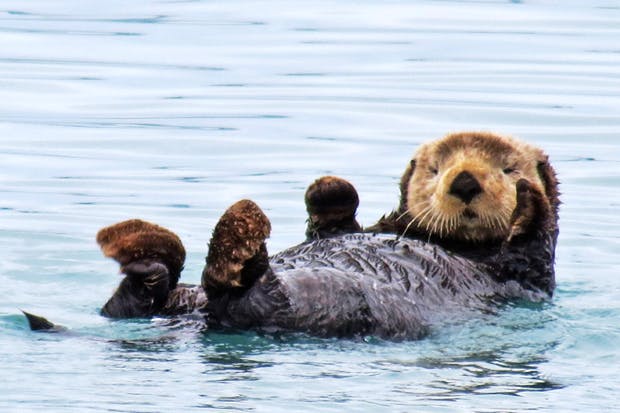My time as a duck-keeper seems to have come bloodily to an end. I have had ducks on my pond for some years now, and I have kept buying new ones to replace those that have got murdered. This stretch of South Northamptonshire may look rather cosy and suburban, but it’s ruled by the law of the jungle. Not a day passes without some creature viciously killing another. Only a month or so ago there were 13 ducks on my pond. Then there were eight. Then there were five. And now there is only one, an Indian Runner drake that stands forlornly on the base of a statue in the middle of the pond, awaiting what it probably feels is its inevitable fate.
As you see, I have stopped replacing lost ducks in the way that I used to. I became too disheartened by the endless killings. Let nature take its course, I thought. Well, nature did; but it turns out that I have been wrong about where to place the blame. I always thought that foxes were nature’s guilty agents in this matter. They have certainly been killing my chickens (though they are no longer, as these are now well protected), but not, it now seems, my ducks. A couple of the latest ducks to die have been found lying in the water, mutilated and disembowelled. This could not have been a fox’s doing; foxes don’t like to swim or to attack their prey in the water. But there is an animal that does both these things with enthusiasm, and that is the otter. And otters do like eating ducks.
The last four of my ducks to die were killed immediately after the neighbouring farmer had (as I reported last week) shot seven foxes in a single night. There was unlikely to have been a fox on a murder spree so soon after that. And the farmer, Geoffrey Smart, examining footprints in the mud near the pond, declared unequivocally that they belonged to an otter. The pond is a couple of hundred yards from the river Tove in the valley below, where otters have been known to dwell in the past. But none has been seen there lately, though there are plenty of mink around. Mink are also semi-aquatic little hunters, but could not, I am assured, have killed my ducks. Everybody here agrees that the guilty party has to have been an otter.
Long ago, in the early Sixties, I visited Gavin Maxwell, author of Ring of Bright Water, at his otter sanctuary on the west coast of Scotland, and there was something very touching about the otters and his relationship with them. But although they have a lot more charm than weasels, otters are nevertheless still pretty weaselly by nature. And until the 1970s they were widely hunted for their pelts, for sport, and to protect the fish on which they fed. By then, thanks mainly to other factors, such as water pollution, Britain’s otter population had declined so dramatically that in 1978 the otter was placed on the list of protected species and its hunting was banned.
Between 1958 and 1963, there were 11 otter hunts in England and Wales that killed 1,065 otters between them. By 1977, there were still nine registered packs of otterhounds in Britain, but they were then dispersed, taken into homes as pets, or switched to hunting mink with the newly founded packs of minkhounds. Mink is now widely hunted in Britain, even on the river Tove.
The country’s only surviving otterhound pack, the Pembroke and Carmarthenshire, is also used for hunting mink. Otterhounds are charming animals; but while otters have staged a strong recovery throughout the country, their hunters have replaced them as a threatened species. There are now only a few hundred otterhounds left in the world.
So having made the discovery that my ducks have been killed by an animal against which revenge is legally forbidden, there seems no point in replenishing my flock just so as to provide otters with more murderous fun and games. But I do feel sorry for my one surviving drake. It just stands there, looking sad and lonely. I don’t know how long it will survive, but perhaps I should get it a companion, just so that it doesn’t spend its final days in melancholy solitude.
Got something to add? Join the discussion and comment below.
Get 10 issues for just $10
Subscribe to The Spectator Australia today for the next 10 magazine issues, plus full online access, for just $10.













Comments
Don't miss out
Join the conversation with other Spectator Australia readers. Subscribe to leave a comment.
SUBSCRIBEAlready a subscriber? Log in